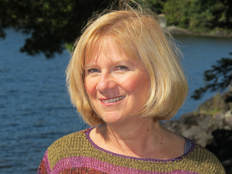|
By Joe Fiorito  I have just retired from a 36-year career in journalism; some of that time was spent as a CBC manager and radio producer; most of the time, I was a newspaper columnist. During those years, I managed to write a memoir and a novel and several other books; my latest is a collaborative effort, the memoir of one of Canada’s most notorious bank robbers. But whether I was writing for radio or for the newspapers, or trying to make literature, all my work involved a reliance on the basic principles of narrative: give me a character, give me the details, let there be something at stake in the story, and if I have these things then I will take responsibility for laying all of it out with a beginning, a middle and an end. The point of any writing, regardless of the form, is to show who we are, where we are, and how we are; but because there are only a few different kinds of story, each one of them depends for its singularity on an underpinning of close observation. Because it’s all in the details; that’s what distinguishes one work from another, and it is what will make your own memoir stand out. As for observation, and for what passes as truth, I remind you that if a dozen people see a thing, you will get a dozen versions of what happened; this is one of the hard realities of the memoir, and it is just one of the many things we will discuss in the workshop. I’m looking forward to coming home. If you are interested in registering for the Joe Fiorito workshop on Memoir, sponsored by NOWW on Saturday, November 4 from 10 a.m. to 3 p.m., follow this link: https://www.nowwwriters.ca/workshops.html Joe Fiorito is a journalist who has worked a city columnist for the Montreal Gazette, The Globe&Mail, The National Post and the Toronto Star newspapers. He won the National Newspaper Award for Columns in 1995; the Brassani Prize for Short Fiction in 2000; and the City of Toronto Book Award in 2003.
He is the author of seven books: Comfort Me With Apples (collection of columns) Tango On The Main (collection of columns) The Closer We Are To Dying (memoir) The Song Beneath The Ice (novel) Union Station (non-fiction) Rust Is A Form Of Fire (non-fiction) His most recent book, The Life Crimes and Hard Times of Ricky Atkinson, Leader of the Dirty Tricks Gang, has just been published. He is married, lives in Toronto and is currently at work on his first collection of poetry.
0 Comments
by Valerie Poulin Write what you know. This is the advice you get. From editors and writers, in classrooms and email dispatches, in magazine articles, and on websites. You say what you really know is lost love and regret, but this is not all you know. You know the restlessness of young adulthood, complacency of job and workplace, unrealized dreams. You know the state of apathy. A long-held position. You know that, too. If you were to write what you know about work life, it would be about the monotony, the tedium of working at a job filled with routine. Your protagonist would work on the line in a factory, at a desk job, or as a night janitor. She could be a traffic cop, or a toll-booth operator. You would apply what you know about the dissatisfaction of doing unfulfilling work. You would write about job loss. About being outsourced, restructured, eliminated. You know relationships. You recall successes and failures. You know the relentless hope of dishonest friendship, of hurtful words by teachers, of unkind remarks by pastors and priests. You remember what it felt like to be deceived — by a salesperson, an estranged sibling, a stranger on the street. Anyone on the job site. Everyone in authority. You know what it is to be an outsider. To feel like the ugliest person in the room, the dullard at a party, the least successful person in your social circle. And you know what it feels like to be discarded, unwanted, rejected. You know people: Annoying co-workers, unloving spouses, saucy dependents, secretive neighbours, like-minded board members, political foes. You know romantic love, and write about hook-ups between social workers and single bar owners, between artists and best friends, and affairs among co-workers. You know about first love, parental love, unrequited love. Self-love. Write about it. You think of your love for animals and make your main character a zoologist, a veterinarian, a dog-walker. A pet owner. You know what it is like to lose a child, a brother, a sister, a transgendered friend. You know loss. You know sleepless nights and the truest definitions of “tragedy” and “aftermath”. You know the struggles associated with “survivor” and “suicide,” but you can deal with those words later. You know emotion: fear, joy, guilt; hostility, curiosity, gratitude. Put your characters in situations you are familiar with: friendships, marriages, divorces, motor vehicle collisions, drug deals, funerals. How they behave in these situations is their business. You create specific experiences from general ones. That’s what makes your characters—and you— come alive. Inner life is what you know; it adds to the depth of your characters. You apply the emotion of your experiences and your characters become what you are not: plucky, daring, outspoken; empathetic, trusting. Fearless. You write what you know, and this makes your telling memorable. That’s when it becomes a story.  Valerie Poulin is an internationally published poet and author of features, profiles, and general-interest articles for a variety of publications. She works as a freelance technical writer. Valerie also self-publishes chapbooks of poetry and small story collections. The Lakehead appears frequently in her work.  How long have you been a member of NOWW? As a member of NOWW for 15 years, I’ve enjoyed writing workshops in the Kenora area. Charles Wilkins inspired a large group at the Kenora Library by reminding us that stories tell who we are, give us identity and contain our morals, beliefs and what is important to us. Mike Laverty gave a workshop in Dryden that served writers from Kenora, Sioux Lookout and Atikokan. The writing exercises revealed how many of us are inspired by the rich and exotic landscape we writers draw on in northwestern Ontario. I served on the NOWW board as regional representative from 2015 to 2017. It was wonderful to work with this dynamic group of writers and to get to know all about the different kinds of writing happening from Marathon to Kenora. What do you normally write? I write creative nonfiction and short stories. I’ve also completed a script for a play. This was prompted by an eight-week playwriting course led by Mark St. Germain in Sarasota, Florida last winter. Do you have a favourite book or favourite author? I have many favourite authors: Elizabeth Strout, Ian McEwan, Anne Tyler and Carol Shields. There are two books I like to reread: Swann, my favourite Carol Shields novel, and Crime and Punishment by Dostoevsky. In Swann, I enjoy the humour and the respect accorded to all the characters and the structure. Dostoevsky’s portrayal of Raskolnikov’s moral anguish as he contemplates murder is riveting and profound. Let’s get to know you a bit better. Tell us a bit about yourself and how you found your way to writing: I turned to writing after I stopped playing the flute. I’d finished a tour of Northwestern Ontario and Manitoba with a chamber music trio. Though the concerts had been well received, I decided that the number of hours needed for practice and rehearsal didn’t match the market demand. I began writing after I was accepted into a class led by Carol Shields at the University of Manitoba. I am strongly committed to the power of story and to that end, I’m involved with a storytelling initiative in Kenora where community members are given the opportunity to share their personal journeys publically. Tell us a bit about what interests you now: Currently I’m interested in the ways marine biologists are saving coral. Over the past 15 years, my husband and I have witnessed first-hand how coral is bleaching in the Caribbean. There are marine biologists who’ve made the decision to be hopeful and are propelling their hope towards solutions. I’d like to explore this subject in fiction. Who has inspired and impacted your writing? Here are two writing quotes that inspire me. Amelia Gray says, “writing seems to work best when it’s fighting to get at some truth.” Well over 100 years ago Dostoevsky said, “the main idea of the novel is to depict the positively good man. There is nothing more difficult than this in the world, especially nowadays.” Will we see you at any upcoming NOWW events? I look forward to participating in NOWW workshops and submitting to the NOWW writing contest, if I can keep my word count down! Where can we learn more about you and your writing? I don’t have a website or any social media platforms yet. It’s on my to-do list! I graduated from the University of Toronto with a bachelor’s degree majoring in music and minoring in English. I’ve published nonfiction in magazines and anthologies on a wide range of subjects including travel, music, parenting and perspectives unique to where I live. I'm a past CBC literary award winner in the creative nonfiction category and have been short-listed for the Writers Union of Canada Short Prose Competition for Developing Writers twice. After a twenty-five year career as a music teacher, I continue to share music-making on a volunteer basis with adults who struggle with mental illness. I've been married for thirty-four years and have two grown sons. And to end things off, tell us something surprising about yourself! I took up golf two years ago. I resisted for many years because I thought it would take up time better spent reading and writing. Not only am I hooked on the game, my writing has benefited! There isn’t time to overthink your swing because you’re playing with a group and each group needs to move along. I find that forward moving flow, from one fairway to the next, has transferred to my writing practice. My daily word count has gone up! |
NOWW Writers
Welcome to our NOWW Blog, made up of a collection of stories, reviews and articles written by our NOWW Members. |
Proudly powered by Weebly

 RSS Feed
RSS Feed